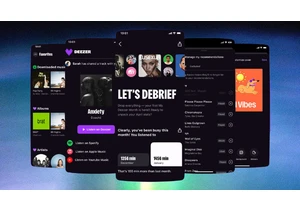Like many people, Peggy Johnson was dazzled by Magic Leap’s technology when she visited the company’s Florida headquarters. Seeing the way its AR headset fused the real world and digital imagery into a single experience, she was “blown away by the technology—I couldn’t believe it,” she recalls. And then, when she learned in the spring of 2020 that founder Rony Abovitz was stepping down as CEO, she acted on her long-held ambition to run a company and “just intentionally raised my hand.” At the time, Johnson was Microsoft’s executive VP of business development, after spending a quarter century at Qualcomm. But when she was named as Abovitz’s successor as Magic Leap CEO in July 2020, the bloom was distinctly off the company’s rose. Much of the early excitement over its headset had devolved into skepticism or even cynicism. The company had abandoned the consumer market and laid off 1,000 employees, and there were rumors it had tried to sell itself. Her challenges included both charting a new future for Magic Leap and overcoming perceptions that it was better at hoopla than shipping useful products. Magic Leap CEO Peggy Johnson speaks at Web Summit in Lisbon. [Photo: Harry Murphy/Web Summit via Sportsfile/Flickr]Last week, at the Web Summit conference in Lisbon, I caught up with Johnson, who updated me on plans for Magic Leap 2, the company’s second-generation headset, which is due for general release next year. She seemed careful not to overpromise. “We’re not trying to overhype at all,” she told me. “[We’re] just trying to show what it can do.” More specifically, Magic Leap has decided to focus on what its technology can do in three specific markets: healthcare, manufacturing, and defense. “The reason that they’re of the most interest is they’re already used to wearing something on their eyes,” says Johnson. The specific applications the company has in mind include everything from training factory-floor workers to giving surgeons the ability to consult distant experts during operations. Like the first Magic Leap headset, Magic Leap 2 isn’t self-contained: It connects via cable to an external pod that provides it with computational muscle and battery power. But the new version is “smaller and lighter and faster, and it’s got three times the compute,” says Johnson. “The chip inside is AMD—a semi-custom chip that we worked on with them—and it’s an all-day wearable product.” Magic Leap 2 also has a taller field of view for the digital imagery it melds with the reality users see through the headset, allowing the augmented display to cover twice as much space as with the first-generation headset. “The bigger the field of view, the better, and this is a pretty massive field of view,” Johnson says. Magic Leap 2 provides twice the field of view of its predecessor. [Image: Courtesy of Magic Leap]Even if Magic Leap’s days of being the tech industry’s most tantalizing, talked-about startup are long over, it still has the attention of one important constituency: investors. In October, the company announced $500 million in new funding, almost matching the $542 million round that helped to put it on the map in the first place back in 2014. “It’s a comforting feeling to have that done now, and focusing on the product and growing the ecosystem, which are the next things we really have to lean in on,” says Johnson. The matter of the metaverse I couldn’t let Johnson go without asking her about the metaverse—the buzzy, slightly amorphous concept of a virtual world where people interact with each other as human avatars rather than through intermediary interfaces such as web pages. Facebook—I mean Meta—is betting its future on the metaverse and promoting the intensive research it has underway to create AR glasses. Microsoft, whose HoloLens 2 headset Johnson calls Magic Leap’s only direct competitor, is already teasing its vision of a work-centric metaverse. Given that the AR technologies Magic Leap has been working on for years have obvious metaverse potential, is Johnson eager to glom onto the trend? Magic Leap 2 remains a headset with a tethered computing appendage.Instead of talking the metaverse up, Johnson argues that the company’s tech isn’t yet ready, at least from a mainstream perspective. Magic Leap 2 remains a headset with a tethered computing appendage—a long way from the slim, all-in-one AR glasses which she says are critical for the metaverse to take off: “When we can get it into that form, we’ll be back [in the consumer market].” Johnson might not be itching to pivot to the metaverse anytime soon, but she emphasizes that it’s a big enough idea to encompass multiple scenarios and technologies: “There’s a VR aspect. There’s an AR aspect. There’s a consumer aspect. There’s an enterprise aspect.” It sounds like there should be room in there for Magic Leap. Even if the company’s most pressing goal is to deliver on the expectations it’s been raising—less grandiosely this time around—for its next headset.
Chcete-li přidat komentář, přihlaste se
Ostatní příspěvky v této skupině

If real Easter eggs aren’t your thing this weekend, you may find hunting for digital ones more enjoyable. And there are some cool ones to find at your fingertips, provided you have an iPhone or Ma

With music streaming, users have gotten used to being at the mercy of algorithms. But French music streamer Deezer is making it easier for its subscribers to make the algorithm work for them.

Trying to get from point A to point B? If only it were that simple! With any manner of travel these days, you’ve got options: planes, trains, buses, ferries, and beyond. And finding the best

When Twitter cofounder and Medium founder Evan “Ev” Williams was planning his 50th birthday party, he didn’t know who to invite. Having spent more of his life building and scaling tech

If you thought you’d heard the last of the viral “Apple” dance, think again. The TikToker behind it is now suing Roblox over its unauthorized use.
Last year, during the height of Brat su

A Wall Street Journal report this week gave an extensive look into how Elon Musk, the

Netflix fared better than analysts anticipated during the first thr
